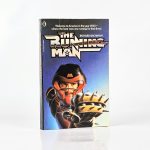In the ever-evolving landscape of American pop culture, few works have captured the imagination quite like Neil Gaiman’s American Gods. First published in 2001, this novel has since become a cornerstone of modern mythology, blending ancient deities with contemporary American life. The recent television adaptation on Starz has reignited interest in the story, making it more relevant than ever. This article delves into the themes, characters, and cultural significance of American Gods, offering insights into why this tale continues to resonate with audiences.
The Concept of Gods in Modern America

At its core, American Gods explores the idea that gods are not just ancient figures from mythology but are also shaped by the beliefs and values of the people who worship them. Gaiman presents a world where old gods, once revered in their native lands, have lost their power in America because they no longer have worshippers. In contrast, new gods—representing modern obsessions like technology, media, and consumerism—have risen to prominence. This dynamic creates a conflict between the old and the new, reflecting broader societal changes.
The novel’s premise is both simple and profound: as society evolves, so too do the forces that shape our lives. The old gods, such as Odin (known as Mr. Wednesday), Anansi (Mr. Nancy), and Czernobog, struggle to survive in a world that has moved on from their traditions. Meanwhile, the new gods, including the Technical Boy and Media, thrive on the attention and devotion of a tech-savvy, media-driven population.
Key Themes in American Gods

1. Belief and Identity

One of the central themes of American Gods is the power of belief. Gaiman illustrates how gods derive their strength from the faith of their followers. When people stop believing in a god, that god loses its power. This concept raises questions about the nature of identity and how individuals and societies define themselves through their beliefs.
2. Cultural Assimilation
The novel also examines the theme of cultural assimilation. Many of the old gods are immigrants or descendants of immigrants, struggling to maintain their relevance in a society that often overlooks or misunderstands their origins. This reflects the broader experience of many Americans, particularly those from diverse backgrounds, who navigate the challenges of preserving their heritage while adapting to new environments.
3. The Struggle Between Old and New
The tension between old and new is a recurring motif in American Gods. The old gods, with their rich histories and complex personalities, often clash with the new gods, who represent the fast-paced, technology-driven world. This conflict serves as a metaphor for the ongoing struggle between tradition and progress, highlighting the complexities of modern life.
Notable Characters
1. Shadow Moon

Shadow Moon is the protagonist of the story, a former prison guard who finds himself drawn into the world of gods. His journey is one of self-discovery and transformation, as he learns to navigate the challenges of a world where the lines between reality and myth blur. Shadow’s character embodies the ordinary man caught in extraordinary circumstances, making him relatable to readers.
2. Mr. Wednesday
Mr. Wednesday, based on the Norse god Odin, is a charismatic and enigmatic figure who serves as Shadow’s mentor. He represents the old gods and is determined to restore their power. His cunning and strategic mind make him a compelling character, though his methods often raise ethical questions.
3. Bilquis
Bilquis, the Queen of Sheba, is a powerful goddess of love and fertility. In the novel, she is portrayed as a prostitute in Los Angeles, seeking devotion from her clients. Her character highlights the intersection of myth and modernity, as well as the complexities of desire and power.
4. The Jinn
The Jinn, a mysterious and enigmatic figure, adds depth to the narrative. His journey with Salim, a taxi driver, showcases the potential for connection and understanding between different cultures. The Jinn’s quest for respect and recognition resonates with themes of identity and belonging.
Cultural Significance
American Gods holds significant cultural importance as it reflects the evolving nature of American society. The novel’s exploration of immigration, assimilation, and the impact of technology on belief systems provides a lens through which to understand contemporary issues. By weaving together various mythologies, Gaiman creates a rich tapestry that speaks to the diversity of American experiences.
The television adaptation has further amplified the novel’s reach, bringing its themes to a wider audience. Through visually stunning scenes and compelling storytelling, the show captures the essence of Gaiman’s work, making it accessible to those unfamiliar with the source material.
Conclusion
In conclusion, American Gods is a thought-provoking exploration of belief, identity, and the ever-changing nature of society. Its themes continue to resonate with audiences, offering insights into the complexities of modern life. As we navigate an increasingly interconnected world, the lessons and reflections offered by Gaiman’s work remain as relevant as ever.
Whether you are a long-time fan of the novel or a newcomer to the world of American Gods, there is much to discover and appreciate. The story invites us to reflect on our own beliefs and the forces that shape our lives, reminding us that even in a world of constant change, the power of myth endures.
Stay updated with the latest news and explore today’s headlines.











More Stories
Top Running Back Rankings for Week 8: Expert Analysis and Projections
The 1987 Movie ‘Running Man’: A Nostalgic Look at the Classic Action Film
US Trending News: What Is the Sam Adams Winter Variety Pack? A Complete Guide for 2024